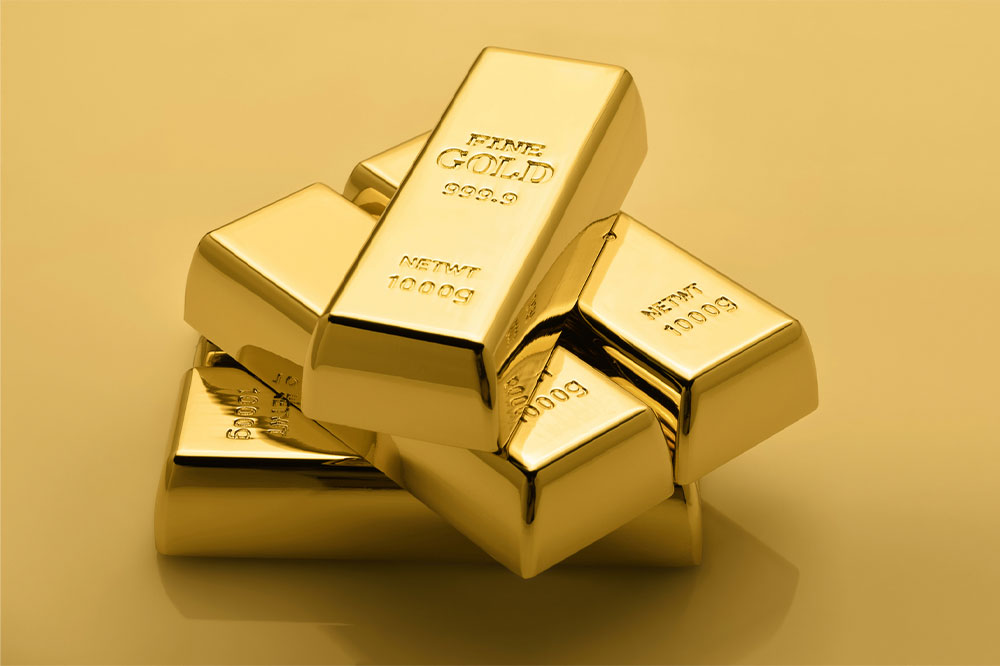Precious metals – What are they
Although there are 94 metals on the Periodic Table, only nine are considered precious. These comprise scarce metals that have a higher financial value compared to other metals. Many of these metals are used to make jewelry. Some of these are also traded in the stock market, and a few are used to make electrical and industrial components, automobiles, and décor items. Let us find out where they are found and why they are precious.
What are precious metals?
Traditionally, gold, silver, and platinum were considered the most precious metals. To date, investors are ready to trade these three metals because they are the most popular.

As per the latest divisions, nine metals top the chart in terms of how precious they are. These, as per availability and abundance, are:
- Platinum
The most abundant rare metal is platinum, as it is available at 0.003 parts per billion. It is highly malleable and immensely popular because it is non-corrosive. - Rhenium
The next abundantly available but scarce metal is rhenium. This metal also has a very high density and the third-highest melting point. Rhenium is mainly produced during the mining of copper as a by-product.
This is an alloy derived from platinum and palladium. Ruthenium is a silver-shiny, hard, and highly resistant metal. It is widely used in the electronics industry, where it is used in making electrical contact plates and chip resistors. It is also used in solar cells and as a catalyst in chemical reactions.
Of all the rare metals, rhodium is the most valuable. It has a silverish appearance, high in corrosion resistance, and is highly reflective. It is the rarest of the rare. The metal is produced as a by-product during the copper and nickel refining process. It is used in making auto catalytic converters, as a catalyst in chemical processes, and used as a coating for optical fibers and mirrors.
This is a white-colored metal with a high melting point. The density of the metal is pretty high, too. Iridium is produced during nickel mining and is also processed from platinum ore. Alloys formed with iridium are used for making compass bearings, standard meter bars, spark plug contacts, and pen tips.
This metal has a silverish-blue color. It is the most rigid metal known, and as a result, it has a high melting point, too. Additionally, the metal is very brittle. Another fact is that metal is one of the densest elements found on Earth and hardens the electrical contacts and filaments in devices.
Gold, one of the safest metals for investment purposes, is the most popular and malleable metal.
This metal is whitish-gray in color and can survive under extreme heat. Its malleability power is considerably high. Palladium is used to make catalytic converters that are used to reduce emissions in automobiles. It is also used in jewelry-making and manufacturing dental crowns and fillings, and making ceramic capacitors in the electronics industry.
This metal is one of the best electrical and thermal conductors. The shiny material is widely used in jewelry, mirrors, crockery, batteries, printed circuits, and tableware.
Where are precious metals found?
- Platinum is mined majorly in Canada and South Africa.
- Rhenium is not found freely in nature and is found in molybdenum roaster flue in copper ores.
- Ruthenium is found free and is mostly located in North and South America and the Ural Mountains in Russia.
- Rhodium is primarily mined in South Africa, Canada, and Russia and is also found in the sands of North and South America.
- Iridium is found in the US, Burma, South Africa, Russia, Australia, and Brazil.
- Osmium is found in North America, South America, and Russia.
- On the other hand, gold is mined majorly in the US, South Africa, China, and Australia.
- Palladium is found in Brazil.
- Silver is mainly mined in South American countries like Mexico, Peru, and Chile. China is also the biggest producer of silver.
Why are these metals precious?
The worth or value of metals is determined majorly by the availability of the metals. Precious metals have high economic value because they are rare in nature; their scarcity makes them precious. If it were not for their scarcity, they would not cost as much or be considered precious. These scarce metals are being researched continuously, and increased utility is expected in the future. As a result, it is essential to know which metal is valuable and which is not.

